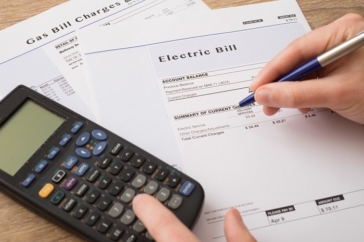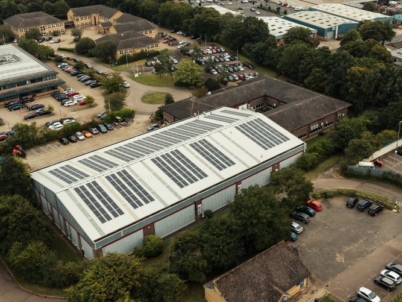-
Sparck Technologies awarded Royal designation - March 27, 2025
-
OpenADR Alliance announces first OpenADR 3.0 certified products with EVoke Systems, E.ON Energy and Universal Devices - March 25, 2025
-
Growing fulfilment and contract packer appoints new Managing Director - March 25, 2025
-
When is it time to invest in a WMS? Understanding the key trigger points - March 25, 2025
-
eCapital helps Vantage Recruitment on its journey to financial success - March 24, 2025
-
Hugo Beck Celebrates 70 Years of Packaging Innovation with Open House Events - March 20, 2025
-
PROLOG FULFILMENT SUPPORTS LUNA DAILY’S COMMITMENT TO BETTER BODY CARE FOR ALL WOMEN - March 19, 2025
-
Motion Ventures launches largest-ever maritime tech fund at $100M to meet the industry’s new pace of adoption - March 18, 2025
-
ITD GLOBAL APPOINTS GROUP CHIEF REVENUE OFFICER - March 17, 2025
-
SURECAM TEAMS UP WITH ENTERPRISE FLEX-E-RENT FOR VEHICLE REPAIR & MAINTENANCE CONFERENCE - March 14, 2025
Energy price cap sparks warning for businesses falling out of contract and reinforces urgency of net-zero decision making
In a new report, commercial energy and sustainability consultancy Advantage Utilities has warned businesses that falling out of contract onto deemed rates is to be avoided at all costs, given the price cap announced by the government which only covers wholesale price.
The warning was given against a backdrop that energy conditions have improved since the price peak in August, with prices continuing to decrease.
With the UK government offering energy price cap support to both domestic and non-domestic consumers, businesses can better plan for the future, with the price cap in place for the next six months, capping wholesale costs only. It is therefore crucial that businesses avoid deemed rates which are likely to be significantly higher and uncertain.
Net-zero decision-making
Unprecedented increases in energy within the UK market have rapidly advanced the case for net-zero solutions. The Prime Minister echoed this, stating that “in the meantime, companies with wherewithal need to be looking for ways they can improve energy efficiency and increase direct energy generation”.
The Advantage Utilities report offers practical support through outlining three key factors which determine responses of businesses when considering different technologies . These are: economic savings, environmental benefits, resource allocation.
In light of the beneficial energy price cap for businesses, decision-makers now have the confidence to integrate net-zero roadmaps with greater clarity over budget forecasts. As a result of economic savings over past decades, the typical return on investment of many technologies is from 1 to 5 years, further incentivising the economic case for net-zero technology.
Environmental awareness also continues to rise, meaning the way businesses manage their carbon footprint has never been greater – a trend that is set to continue. Environmental benefits from on-site generation and efficiency remain beneficial to businesses as they reduce dependence on non-environmentally friendly grid-sourced energy.
Commenting on the report, Andrew Grover, Chief Executive Officer at Advantage Utilities, said, “Businesses now know what they are spending, what resources they have to mitigate their grid consumption, and the timeframes to initiate these technologies. Aside from energy costs, pressure on businesses from various sources to be environmentally aware and manage their carbon footprint has never been greater. This is a trend that is almost certain to continue as we are already seeing a huge uptake in demand from businesses wanting to address their Scope 1, 2 and in many cases Scope 3 emissions.”
Additional guidance and advice on energy management can be found within Advantage Utilities’ most recent report here.
































